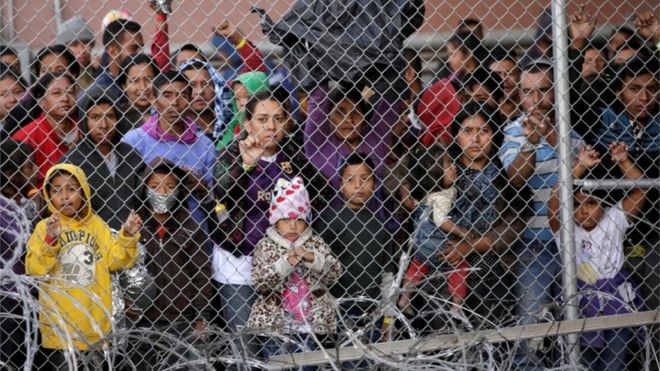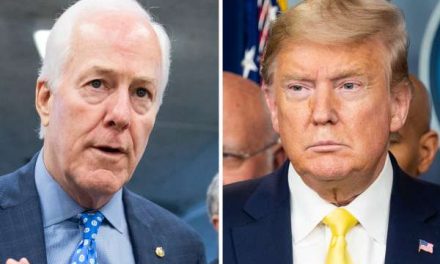Image Credits: Reuters.
There’s nothing quite like getting concern-trolled by both Andrew Sullivan and David Brooks on the same day. They are warning the Democrats that they’re in danger of throwing away an eminently winnable election in 2020 by moving far to the left of the American people, particularly on immigration policy.
My problem is that I’ve been very reluctantly coming to a similar conclusion. If I needed fresh evidence, I received it yesterday when Nancy Pelosi was forced to capitulate on the emergency border funding bill in the face of a revolt from centrists and “problem solvers” in her own caucus. The flood of asylum-seekers at the border is overwhelming our resources, and that would be true even under a humane president intent on doing their best to manage what amounts to a humanitarian crisis. The Democrats are rightfully focused on the deplorable response of the Trump administration, and there are excellent reasons for Congress to interject itself into the policy debate using the power of the purse as their leverage. The progressives are not wrong about this. Even on the politics, highlighting the brutal treatment and child abuse and endangerment can turn decent people against the Republicans.
But the policy response of the party leaders and presidential candidates seems deeply out of touch with the opinion of even most Democratic voters. Pollster Stanley Greenberg monitored the reaction of 210 Democrats during the two nights of debates, and here is what he found:
Unsurprisingly, the voters said their most important issues were health care and drug costs, by a wide margin. And that issue only became more important to them as the candidates spoke. Other topics that grew in importance over the course of the two nights: “getting immigration under control” and climate change. Climate change was also a singularly animating topic for unmarried women toward the end of the second debate.
The candidates didn’t actually spend a ton of time talking about “getting immigration under control.” They focused much more on the plight of would-be immigrants as they competed to offer the most generous welcome possible. This varied from offering free health care to undocumented workers to decriminalizing illegal entry to granting citizenship to everyone who makes it here and subsequently commits no crimes.
I don’t think this is how most Americans are viewing the crush of asylum-seekers at the border. I think they’re closer to Trump’s view that something ought to be done to dissuade them from showing up in such large numbers. For Sullivan, the main problem is the overly generous terms on which we’re willing to consider asylum cases which incentivizes people to show up and apply, and then skip out and stay if the ruling doesn’t go their way. He’s contemptuous of the idea that anyone who lives in a violence-prone country or is a victim of domestic violence should be presumptively qualified to become a U.S. citizen. Yet, he claims his main concern is that the backlash to these kinds of policies is a new form reactionary and fascistic politics which is on the rise in Europe and here in the United States. He supports a bill called the Northern Triangle and Border Stabilization Act that is currently circulating in Congress.
It proposes increased U.S. aid to Central American countries, to tackle the problem at its roots; a big investment in border facilities to ensure far more humane treatment of asylum seekers; a much stricter monitoring system to keep track of them after processing to make sure they turn up for their court hearings; many more immigration judges to reduce the massive backlog of cases; and it allows for asylum claims to be made in home countries, rather than at the border.
David Brooks goes into a less detail, but he also focuses on how left-wing parties have been losing elections over immigration issues.
Democrats are wandering into dangerous territory on immigration. They properly trumpet the glories immigrants bring to this country. But the candidates can’t let anybody get to the left of them on this issue. So now you’ve got a lot of candidates who sound operationally open borders. Progressive parties all over the world are getting decimated because they have fallen into this pattern.
As much I find their scolding tone annoying and insufferable, I can’t deny that they have some solid points on the politics. Voters want to hear not just how we’re going to treat people who arrive on our borders but how we’re going to get at the underlying problems that are causing the crush. They don’t think it’s a fake crisis, so a successful challenger to Trump needs to meet the American people where they are on this, and then perhaps they can show a humane path forward.
One thing this week showed is that the Republicans are much more united on this issue than the Democrats, and that should be a giant warning sign rather than something people just brush off or complain about. Immigration is what Trump will campaign on, and the Democrats cannot afford to lose that argument.







